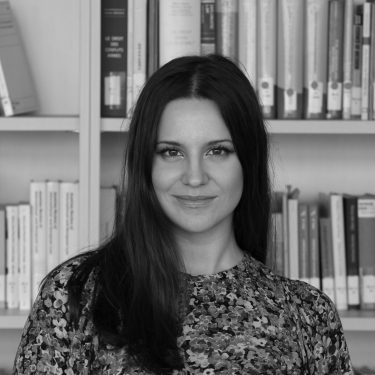Welcome to the latest interview of the Völkerrechtsblog’s symposium ‘The Person behind the Academic’! With us we have Prof. Andreas Føllesdal, and through the following questions, we will try to get a glimpse of his interests, sources of inspiration and habits.
Welcome Prof. Føllesdal and thank you very much for accepting our invitation!
Thanks, I am honoured to be asked.
May I first ask what it was that brought you to academia and what made you stay?
I had an early commitment to social justice issues, and discovered when I started university that I enjoy academic work – teaching and research, especially in political and legal philosophy. I stayed hoping that I might be able to contribute to my early commitments also as a scholar and teacher, albeit then one or two steps removed from where the action is. I would hope to provide some service to my students and readers, making them better at their important tasks as policy makers and advisors. …
If you were not an academic, what would you be?
Furniture carpenter, architect …
Could you share with us three authors that have had a major impact on your perception of justice?
John Rawls, T.M. Scanlon, Susan Okin, Charles Beitz, Martha Nussbaum, … it is difficult to stop!
Which are three texts that you would wish all academics working on international law would read?
John Rawls: A Theory of Justice, revised edition Harvard University Press 1999
Joseph Raz, “The future of state sovereignty” In Legitimacy: The State and Beyond, edited by W. Sadurski, M. Sevel and K. Walton, 69-91, Oxford University Press 2019 – for background read The Authority of Law: Essays on law and morality (Second edition) Oxford University Press 2009.
Samantha Besson and John Tasioulas, eds: The Philosophy of International Law. Oxford University Press 2010
Is there an academic that you think deserves more attention than they receive?
Many! At least two categories: those who publish excellent work but who for some reason is overlooked in a crowded and noisy “marketplace of ideas.” And the many who put in extraordinary efforts to enhance others’ contributions: all those who offer constructive comments on others’ drafts, who anonymously provide charitable journal reviews to improve submissions rather than recommend rejection, and those who write book reviews – for Völkerrechtsblog, EJILtalk.org “favorite readings” and others – to draw our attention to valuable new voices.
What is your favourite place to read and write? What is always near you when you read and write?
A room with a view.
I always read and write with my bibliography/reference database available. It is filled with extensive quotes and my own notes about all I have read since 1983, to compensate for my bad memory.
What is an energy and inspiration booster, at times when you have none?
A run, practice with my amateur saxophone groups, – or “structured procrastination” (© John Perry [link]) to make me do important stuff to avoid doing something I really don’t want to do ..
Have you ever drawn influence from any form of art in your work? Is there anything artistic about writing academic texts?
Sure:
- The history of the German Bundestag and Norman Foster’s ingenious addition, to introduce Jürgen Habermas’ philosophy …
- Bhanubhakta Acharya’s poems about building wells for the braid that is the Nepali people(s), when writing about federalism in Nepal …
- Most recently Sergej Rakhmaninov’s Vocalise and the Ukranians Mykola Lysenko and Mykhailo Starytsky’s “What a moonlit night.” They influenced and framed a joint lecture with Professor Maja Janmyr about lessons from Fridtjof Nansen for the current refugee crisis in Europe.
There are clearly several artistic elements in writing: The creativity of being startled or surprised by phenomena in the world…. Starting with some puzzle or insight and explore to see where it all leads… Attending to style and composition when deciding how to present the arguments …
Which of your publications is your favourite one?
My favourite is always my next one, which I hope will be better and less confused.
If you could, which unspoken rule of academia would you instantly erase?
John Stuart Mill wrote that “[a] doctrine is not judged at all until it is judged in its best form.” I sometimes get a sense that we don’t heed Mill’s warning. We are instead tempted to read others in less than their best light. This no doubt often happens because we are not bright enough or don’t spend enough time. But I fear that we also engage in uncharitable interpretations in order to score points in some horrendous games academics play – by choice or by necessity. Perhaps it is the harsh competition for academic positions that migrates into other areas of academic life and threatens the cooperative venture that is learning. The competitive mindset in pursuit of relative gains can fuel a focus on others’ flaws rather than their insights, and makes us treat academic praise and esteem as a 0-sum game – as if more applause to some leaves less of it for the rest of us…
Have you experienced or witnessed discrimination in academic circles? What do you think would help lessen discriminatory instances in academic circles?
As part of my training in teaching as a PhD student I reviewed videos of my own teaching, and was embarrassed to discover my own biases in who I give attention. So yes, I have witnessed discrimination.
To reduce discrimination and enhance diversity sometimes such gentle reminders suffice. Often more formalized rules to secure more fair and transparent standards of assessment can reduce discrimination. #MeToo and virulent responses to calls to “decolonize” the academy underscore that more is often required. We need more committed, creative thinking and action about better practices and institutional responses we must put in place to discover and alleviate past injustices and to identify and reduce discrimination in the future.
If you could, which advice would you give to yourself at the early stages of your career?
Return to the USA rather than stay in Norway.
Would you like to share with us a ‘sacrifice’ that you have made for your work? Do you regret it?
Speaking for myself, beyond the answer immediately above I don’t see most of my other choices involving a sacrifice. I instead think of my choices as getting clearer about what I want to give priority to – and importantly: what I do not. For me, academic work, family, friends, health, and select hobbies are in the first category – of course not in that order. What I prioritize away? I long ago decided to have hardly any presence on social media. Not because I am a luddite. Many illuminating and helpful debates occur there. But I know myself: I would waste too much time following and engaging in stupid debates that contribute far more heat than light.
On the other hand, to my great regret, my children have sacrificed much for my work, more than I ever had imagined when I started.
What is a big downside of being an academic?
For scholars with permanent positions, what counts as downside may depend on personality: some are frustrated that the work is never done since we can always do more advising, research or dissemination, while others can live and sleep well even with such demands. Speaking for myself, I am trying to not get frustrated by the quirky Kafkaesque rules and practices that seem to beset universities. They go far beyond reasonable needs for accountability and efficiency, signaling suspicion and incompetence – and sparking cynicism, apathy and lack of loyalty.
For many younger colleagues I think the downside is more grave: uncertain job futures wreak havoc with individual lives – and with the institutions of higher education. In many disciplines researchers face decades of global mobility with uncertain prospects for any permanent position. The huge personal costs understandably scare many away from academic careers – after all, these bright minds can easily choose alternative careers with less sacrifice and at least as much meaning. I know many established academics who hesitate to recommend students to pursue university careers.
We have no reason to believe that in general those who are prepared to choose such a high-risk career path correlate with whom universities should recruit. So, the uncertain career opportunities harm our younger colleagues, but also damage the institutions, and the professions trained there.
So, while we try to improve on the career paths, we must also enhance the opportunities for those younger colleagues who do choose an academic career!
Ideally, whom would you want to find waiting for a meeting with you outside your office next Monday?
A group of bright younger colleagues eager to elaborate and fine tune ERC-proposals!
I enjoy participating in some such efforts:
The Institute for Human Sciences (IWM) in Vienna runs an “ERC Mentoring Initiative” for scholars in Central, Eastern and South-Eastern Europe whose institutions often cannot provide enough feedback and support.
Professor Pauline Westerman at Groningen and I run an ‘idea incubator’ in Rome for international legal theorists to develop their research projects. Great intellectual adrenalin boosts!
What are you working on currently? What may we anticipate in the near future?
A short book on the political history and philosophy of Subsidiarity, and some implications for its roles in international law.
And later this spring, at the University of Toronto, David Lefkowitz and I get to gather contributors to an anthology on philosophy and international law…
Both projects seem very interesting, and I look forward to seeing the outcome!
Thank you very much, Prof. Føllesdal, for participating in our symposium and for having taken the time to respond to our questions!

Andreas Follesdal is a Professor of Political Philosophy at the Faculty of Law, University of Oslo and Co-Director of PluriCourts, a Centre of Excellence for the Study of the Legitimate Roles of the Judiciary in the Global Order.

